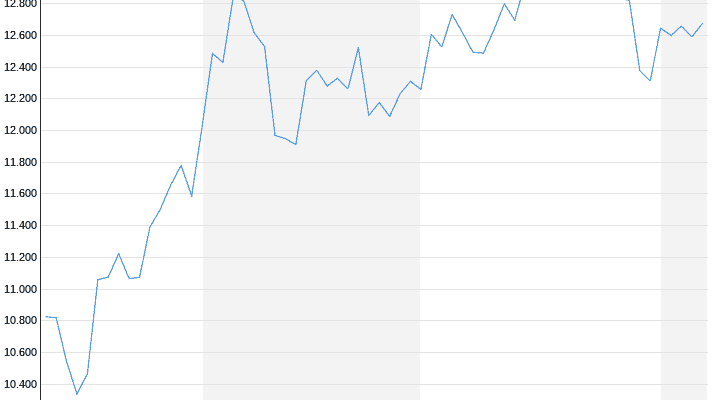In July, the German share index had reached its highest level since the beginning of the Corona stock market crash. Most recently, however, the stock market barometer repeatedly fails at the 12,800 mark. Support for the courses is not to be hoped for in the coming week, at least from the economic expectations.
So far, August has not lived up to its reputation as a bad month on the stock market. That could change, however, because the market has recently been focusing more and more on risks. The number of people infected by the coronavirus is rising again worldwide. The conflicts between the two largest economies, the USA and China, are becoming more widespread and explosive – and the presidential election in the USA is associated with great uncertainties for market players.
On Friday, better-than-expected US labor market data gave the German stock market a boost. The Dax rose by 0.66 percent to 12,674 points. Mainly thanks to the high price gains on Monday's leading index, it rose by almost three percent in the first week of August. The broader mean value index, MDax, did even better than the Dax, with an increase of 1.27 percent to 27,142 points. The EuroStoxx, the leading index for the Eurozone, advanced by 0.38 percent.
In July, the Dax had reached 13,314 points, the highest level since the start of the global corona stock market crash. The leading German index almost completely made up for this slump. But then the recovery rally that started in March ran out of steam. The mark of 12,800 points was recently the highest of emotions, because of this resistance the stock market barometer had recently repeatedly failed.
Even the season of quarterly reports from listed companies, which is gradually coming to an end, could no longer give the market as a whole any momentum. Above all, the prospects for the rest of the year are too uncertain and prices had already recovered too strongly. "At the moment there is a lack of new buyers who come into the market at the current price level," stated analyst Thomas Altmann from asset manager QC Partners. The Dax is "looking for direction". There has been headwind from the strong euro in recent weeks. The common currency rose against the US dollar by almost seven US cents since the beginning of July, its highest level in more than two years.
Sustained U-turn in US monetary policy
This is a heavy burden for the DAX, which is peppered with numerous exporters, as the unfavorable exchange rates are likely to have a negative impact on the next quarterly reports. While the Dax was able to gain a good 2 percent in the phase of the rising euro, the US leading index Dow brought it to 6 percent. But the strength of the euro is more like a weakness of the dollar. Because this also depreciates against other currencies such as the yen, the Swiss franc and the British pound.
"The main reason for the dollar weakness is a sustained U-turn in US monetary policy," said Thu Lan Nguyen, Commerzbank currency expert. The Fed is likely to leave key rates at close to zero for the foreseeable future. This means that their monetary policy no longer differs from that of other important central banks, "especially the European Central Bank," said the analyst.
If the good polls of the Democrat Joe Biden solidify in the race for the US presidency, the stock exchanges are threatened with trouble from the political side. "The pendulum already seems to be swinging very strongly in favor of the Democrats. From a market point of view, this could promise unpleasant developments such as tax increases," said strategist Stefanie Holtze-Jen from asset manager DWS. The decision to vote out Trump in November is by no means certain. Meanwhile, with a view to the annual reports in the new week, the music plays more in the second and third rows.
In the coming week, latecomers like Deutsche Telekom and the electricity companies RWE (both on Thursday) and Eon (on Wednesday) are waiting for quarterly figures from the Dax. The economic data agenda is straightforward. The economic expectations due to be published by the ZEW Institute on Tuesday are likely to have clouded over in August for the second month in a row. "The reason for this is clearly the increasing number of new infections worldwide and especially in Europe during the holiday season," noted the Landesbank BayernLB. Support for share prices is therefore at least not to be expected from this side.
. (tagsToTranslate) Dax (t) Economy (t) US dollars (t) Central banks
